Related Research Articles

Edmund Waller, FRS was an English poet and politician who was Member of Parliament for various constituencies between 1624 and 1687, and one of the longest serving members of the English House of Commons.

Sir Kenelm Digby was an English courtier and diplomat. He was also a highly reputed natural philosopher, astrologer and known as a leading Roman Catholic intellectual and Blackloist. For his versatility, he is described in John Pointer's Oxoniensis Academia (1749) as the "Magazine of all Arts and Sciences, or the Ornament of this Nation".

Richard Neile was an English churchman, bishop successively of six English dioceses, more than any other man, including the Archdiocese of York from 1631 until his death.

Sir Edward Nicholas was an English officeholder and politician who served as Secretary of State to Charles I and Charles II. He also sat in the House of Commons at various times between 1621 and 1629. He served as secretary to Edward la Zouche and the Duke of Buckingham in the Admiralty and became a clerk of the Privy Council. He supported the Royalist cause in the English Civil War and accompanied the court into exile, before assuming the post of Secretary of State on the Restoration.
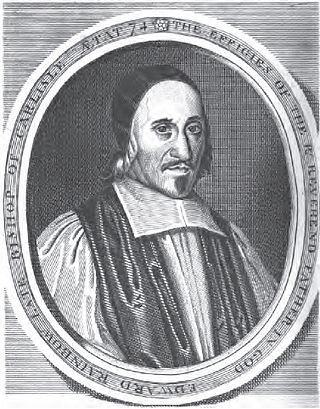
Edward Rainbowe or Rainbow (1608–1684) was an English academic, Church of England clergyman and a noted preacher. He was Master of Magdalene College, Cambridge, Vice-Chancellor of the University of Cambridge and Bishop of Carlisle.
John Digby, 1st Earl of Bristol, was an English diplomat and a moderate royalist during the English Civil War.
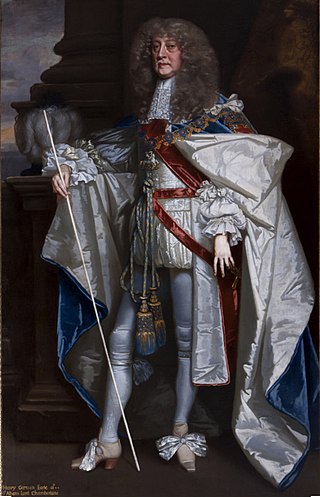
Henry Jermyn, 1st Earl of Saint Albans was an English Royalist politician, diplomat, courtier and property developer.
The College of Chaplains of the Ecclesiastical Household of the Sovereign of the United Kingdom is under the Clerk of the Closet, an office dating from 1437. It is normally held by a diocesan bishop, who may, however, remain in office after leaving his see. The current Clerk is Richard Jackson, Bishop of Hereford.
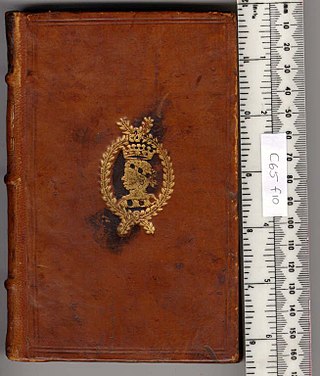
The Rt Hon. Edward Conway, 2nd Viscount Conway, PC, was an English politician, military commander, bibliophile and peer.
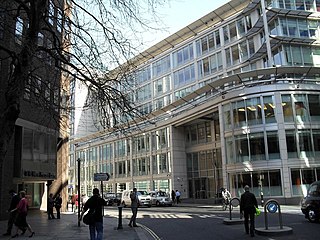
Fetter Lane is a street in the ward of Farringdon Without in the City of London, England. It forms part of the A4 road and runs between Fleet Street at its southern end and Holborn.
Sir William Temple was an English Ramist logician and fourth Provost of Trinity College Dublin from 1609 to 1627. He also served as a member of the Irish House of Commons representing the Dublin University constituency from 1613 to 1627.

Isaac Bargrave was an English royalist churchman, Dean of Canterbury from 1625 to 1643.

Robert Beale was an English diplomat, administrator, and antiquary in the reign of Elizabeth I. As Clerk of the Privy Council, Beale wrote the official record of the execution of Mary, Queen of Scots, to which he was an eyewitness.
Sir Richard Lane, a.k.a. Edward Lane, was an English barrister who practised mostly in the Court of Exchequer. He acted as defence counsel to the Earl of Strafford when the Earl was impeached and attainted, and also represented Archbishop Williams and eleven other bishops who were imprisoned in the Tower of London in 1642.

Francis Gwyn PC, of Llansannor Court, was a Welsh Tory politician who sat in the English and British Houses of Commons at various times between 1673 and 1727.
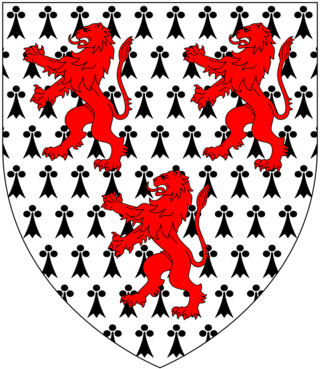
Sir George Chudleigh, 1st Baronet, of Ashton, Devon, was an English landowner and politician, who sat in the House of Commons at various times between 1601 and 1625. He had close family connections to a group of Devon Presbyterians, including Sir William Strode.

Sir William Pitt of Old Palace Yard, Westminster, and of Hartley Wespall and Stratfield Saye, both in Hampshire, and of Iwerne Stepleton in Dorset, was an English courtier and politician who sat in the House of Commons between 1614 and 1625.

Henry Caesar (1562?–1636), Dean of Ely, fifth and youngest son of Giulio Cesare Adelmare, the Italian physician to Queens Mary and Elizabeth, and brother of Sir Julius Caesar, was born, according to his epitaph, in 1564, although other evidence gives the more probable date of 1562.
References
- 1 2 "TOMKINS, Nathaniel (1584-1643), of Dean's Yard, Westminster and Fetter Lane, London". History of Parliament online. Retrieved 12 January 2018.
- ↑ TOMKINS, Nathaniel (1584-1643), of Dean's Yard, Westminster and Fetter Lane, London Retrieved on 1 Mar 2018
- ↑ D. Lloyd, Mems. of the Lives of Excellent Personages (1668), p. 564; Historical Collections, v. 326.
- ↑ Weinreb, Ben; Hibbert, Christopher; Keay, Julia; Keay, John (2008). The London Encyclopaedia . Pan MacMillan. p. 289. ISBN 978-1-4050-4924-5.